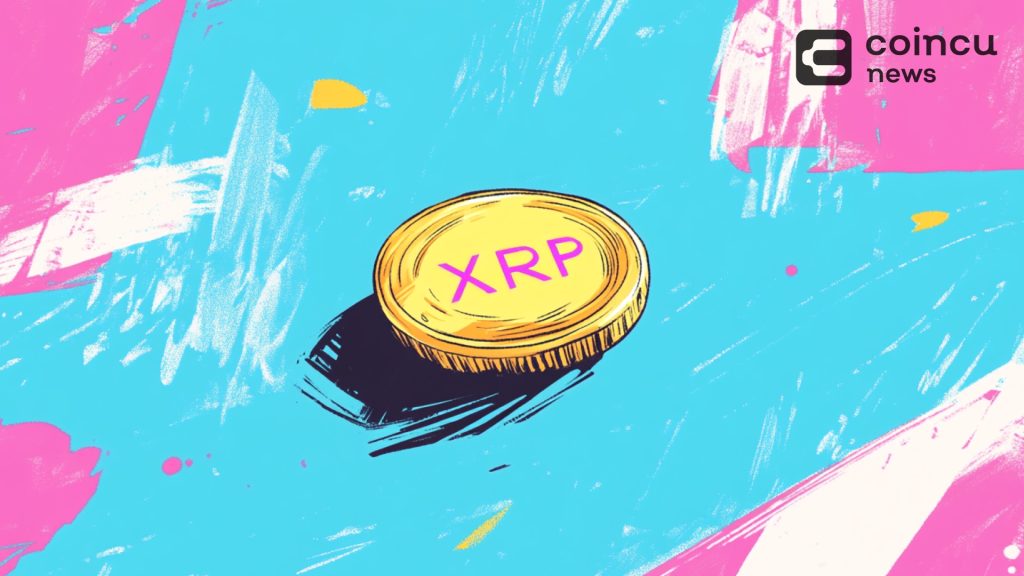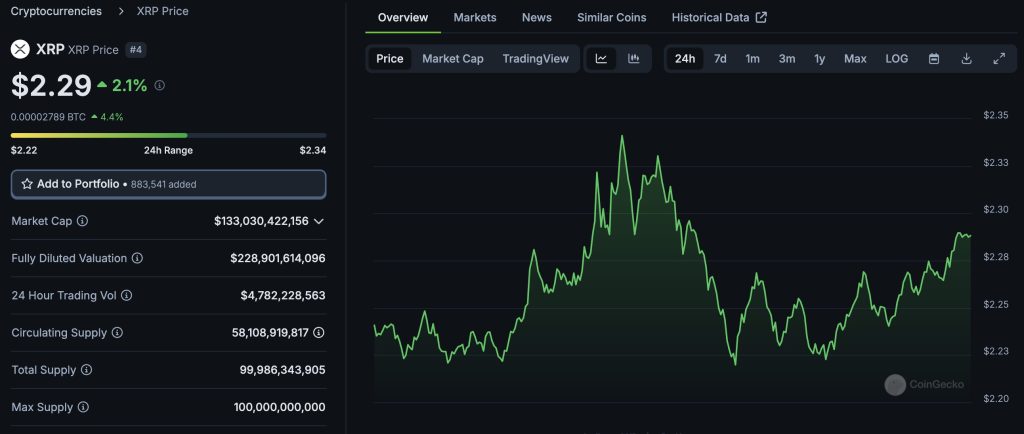Ripple Labs Lawsuit with SEC Coming to a Close on Agency’s XRP Classification
| Key Points: – The SEC is reportedly evaluating whether to classify XRP as a commodity instead of a security, drawing comparisons to Ethereum’s regulatory status. – Ripple Labs lawsuit is in advanced stages, with the company arguing that evolving SEC views on crypto should influence penalty reductions and regulatory treatment. |

The U.S. Securities and Exchange Commission (SEC) is reportedly considering whether to reclassify XRP as a commodity rather than a security as part of its ongoing Ripple Labs lawsuit.
Sources suggest the agency is assessing whether XRP’s functionality and trading characteristics align more with a utility asset rather than an investment contract. The potential shift could significantly impact the cryptocurrency’s regulatory status and its future trading framework.
SEC Considers Reclassifying XRP as a Commodity to End Ripple Labs Lawsuit
According to journalist Charles Gasparino, the SEC is evaluating parallels between XRP and Ethereum (ETH), which was initially issued through an Initial Coin Offering (ICO) but was later classified as a commodity.
The SEC’s lawsuit against Ripple, filed in December 2020, accused the company of conducting an unregistered securities offering through the sale of XRP.
The case took a significant turn in August 2023 when U.S. District Judge Analisa Torres ruled that while institutional sales of XRP constituted investment contracts, secondary market sales to retail investors did not violate securities laws. This ruling resulted in a $125 million penalty against Ripple and restrictions on its institutional sales.
Reports indicate that the Ripple Labs lawsuit is now in its final stages, with discussions focused on adapting to evolving regulatory perspectives on cryptocurrencies. XRP followed the news and had positive fluctuations as the price increased slightly and traded around $2.3 at the time of writing.

Potential Impact on Cryptocurrency Regulation
Ripple’s legal team is reportedly advocating for reduced penalties, arguing that an implicit admission of misconduct contradicts the SEC’s shifting stance on crypto enforcement. The company asserts that if the agency is reconsidering its classification of digital assets, the settlement terms should reflect this evolving regulatory landscape.
If the SEC ultimately drops Ripple Labs lawsuit, XRP could be evaluated primarily based on its decentralized functionality and role in facilitating real-time transactions on its network. Such a shift would align XRP’s classification more closely with commodities, much like Ethereum, and potentially provide greater regulatory clarity for the broader crypto industry.
| DISCLAIMER: The information on this website is provided as general market commentary and does not constitute investment advice. We encourage you to do your own research before investing. |






















